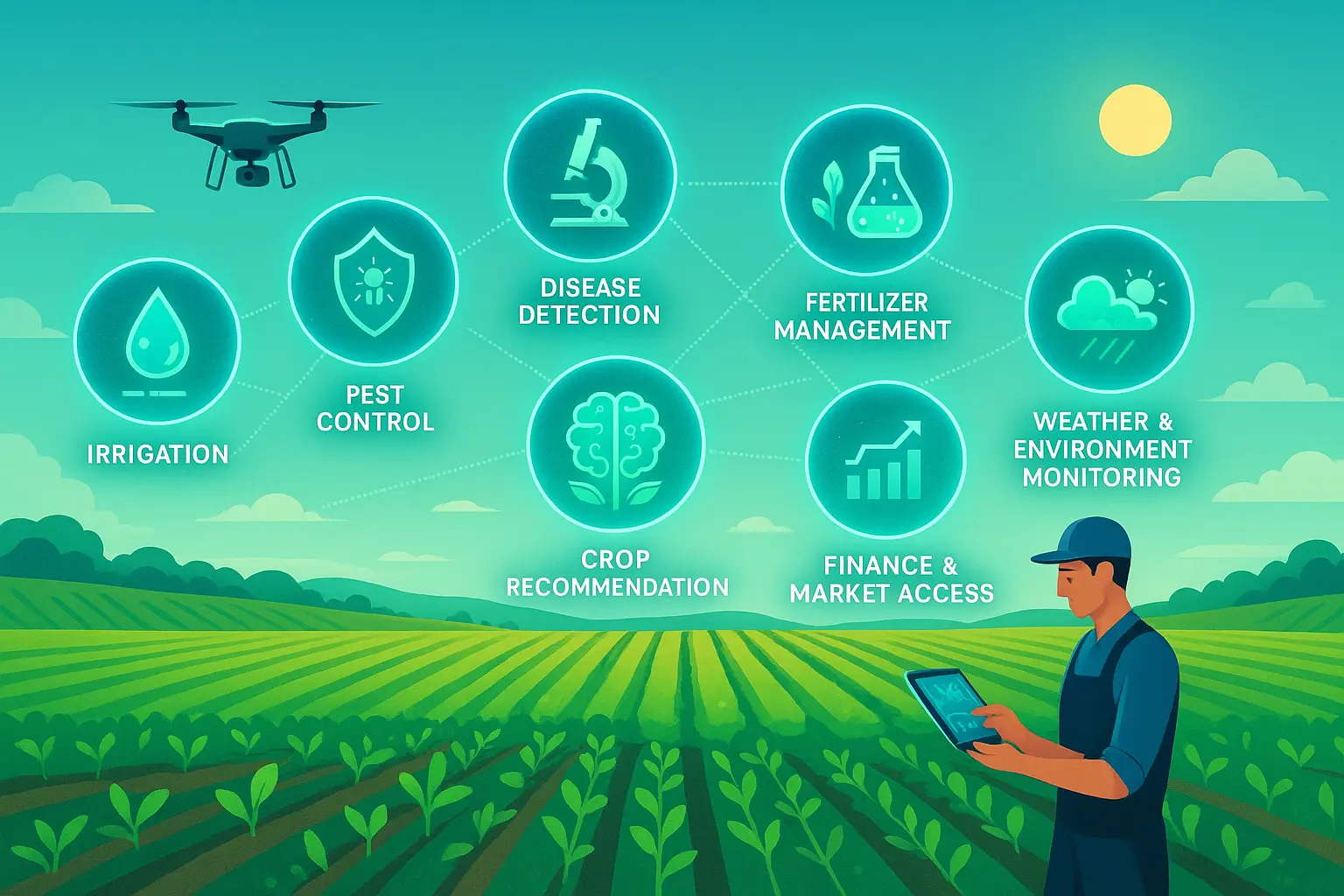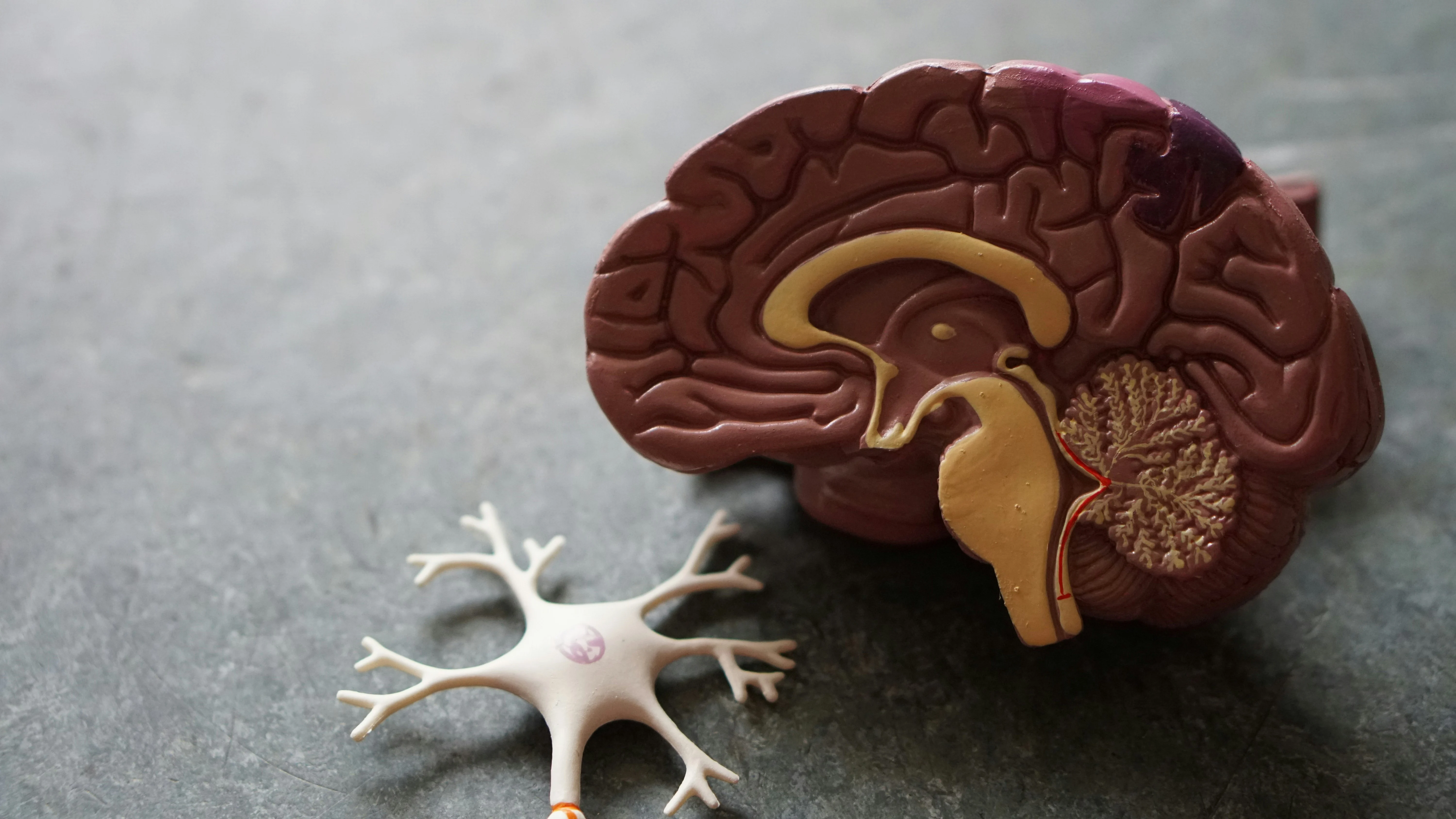Project Details
🌾 Unified Agricultural Platform – Multi-Agent Agriculture System
Project Information
- Category: AI/ML, AgTech, Full-Stack
- Achievement: Capital One Hackathon Winner 2025
- Recognition: Best Innovation Project (Top 14/3500+)
- Project Date: 2025
- GitHub: View Repository
📖 Project Overview
The Unified Agricultural Platform is a next-generation AI-powered agricultural ecosystem that integrates marketplace services, farmer credit scoring, business intelligence, and satellite-enhanced multi-agent systems. It aims to empower farmers with real-time insights, financial credibility, and direct market access while enabling policymakers and businesses to make data-driven agricultural decisions.
🚀 Key Objectives
- • Reduce dependence on intermediaries by enabling direct farmer-to-market access
- • Provide AI-driven, personalized recommendations for crop selection, irrigation, and pest management
- • Introduce a CIBIL-like Farmer Credit Score to help banks, insurers, and lenders assess financial eligibility
- • Leverage satellite imagery and environmental data for predictive analytics and yield optimization
- • Deliver a multilingual (Hindi + English) chatbot interface for easy adoption by farmers
🛰️ Core Features
🔹 Multi-Agent AI System
- Crop Selection Agent: Recommends best crops using NDVI-based vegetation health and yield prediction
- Irrigation Agent: Suggests smart irrigation schedules by combining soil moisture and weather data
- Pest Management Agent: Predicts outbreaks using environmental risks and provides treatment guidance
- Finance Policy Agent: Assesses risk-adjusted loan eligibility, subsidy guidance, and insurance options
- Market Timing Agent: Analyzes supply-demand patterns and advises on optimal selling time
- Harvest Planning Agent: Provides harvest maturity forecasts using NDVI crop monitoring
- Input Materials Agent: Suggests fertilizers and seeds using soil nutrient analysis
🔹 Farmer Credit Scoring System
300–900 scale credit rating, similar to CIBIL.
Factors considered:
- Satellite data performance (25%)
- Crop history (20%)
- Financial records (20%)
- Market adoption (15%)
- Technology usage (10%)
- Farmer verification & experience (10%)
🔹 Smart Marketplace
- Multi-image product uploads with preview
- Verified seller and buyer profiles
- Real-time commodity price updates
- B2B/B2C support for both farmers and enterprises
🔹 Business Intelligence & Analytics
- Price Forecasting: Real-time commodity trends and seasonal demand
- Procurement Insights: Optimal purchase strategies for agri-businesses
- Seller Verification: Automated trust scoring system
- Dashboards: Interactive visualization of agricultural metrics
🛠️ Technology Stack
Backend
- FastAPI
- Python
- Pydantic
- Uvicorn
Frontend
- React
- TypeScript
- Tailwind CSS
- React Router
AI & Data
- Gemini AI (multilingual NLP)
- CNN (crop disease detection)
- ML-based forecasting models
- NDVI vegetation index
📊 Impact & Results
+15–20%
Yield Improvement accuracy in yield predictions
~25%
Cost Optimization reduction in input costs
Financial
Inclusion via credit scores for loans & subsidies
1M+
Scalability ready for farmers across India
🌍 Vision & Future Roadmap
- 📱 Mobile-first app for rural adoption
- 🔊 Voice Assistant in Hindi & English for accessibility
- 🖼️ Computer Vision Models for pest/disease detection from farmer-uploaded images
- ☁️ Cloud-based scalability for pan-India adoption
- 🌐 WhatsApp integration for farmer-friendly access
Deep Learning Tumor Segmentation
Project information
- Category: AI/ML, Research
- Institution: National Institute of Technology, Tiruchirappalli
- Project date: June - August 2024
- GitHub: View Repository
Research Project on Medical Image Analysis
This research project involved developing an advanced deep learning model for tumor segmentation in medical images. Using a modified U-Net architecture with attention gates, the model achieved enhanced accuracy in identifying and segmenting tumor regions.
Project Details
The project aimed to improve the precision of tumor detection and segmentation in medical imaging using state-of-the-art deep learning techniques:
- Attention Gates in U-Net: Implemented attention mechanisms to focus on relevant features in medical images
- Grad-CAM Integration: Added explainability to the model using Gradient Class Activation Mapping
- Research Publication: Authored a paper detailing the methodology and results
- Performance Metrics: Achieved 92% accuracy in tumor classification and 88% Dice score in segmentation tasks
- Dataset: Used a diverse dataset of MRI scans to ensure robust model training and validation
The research has potential applications in clinical diagnosis, surgical planning, and treatment monitoring.
Smart Attendance System
Project information
- Category: Web Development, AI Integration
- Institution: Anna University
- Project date: January - March 2024
- GitHub: View Repository
Automated Attendance Tracking with Facial Recognition
Designed and implemented a smart attendance system that leverages facial recognition technology to automate attendance tracking. The application provides a seamless experience for both students and faculty with real-time updates and reporting capabilities.
Project Details
This project combines computer vision and web development to create a comprehensive attendance solution:
- Face Detection and Recognition: Implemented using OpenCV and deep learning models
- Web Interface: Built with React.js for a responsive and intuitive user experience
- Database: MongoDB for storing student records and attendance data
- Analytics Dashboard: Visual representation of attendance patterns and statistics
- Real-time Updates: Instant feedback and notifications for attendance marking
The system reduces manual effort, eliminates proxy attendance, and provides valuable insights through attendance analytics.
AI Chatbot
Project information
- Category: AI/ML, NLP
- Institution: Self-initiated project
- Project date: April - May 2024
- GitHub: View Repository
Intelligent Conversational Agent for Customer Support
Developed an intelligent chatbot that uses natural language processing to understand user queries and provide relevant responses. The chatbot is designed to handle customer support inquiries, answer FAQs, and escalate complex issues to human agents when necessary.
Project Details
The AI chatbot leverages advanced NLP techniques to deliver a seamless conversational experience:
- Intent Recognition: Identifies the purpose behind user queries
- Entity Extraction: Recognizes important information like dates, names, and product references
- Contextual Understanding: Maintains conversation context for more natural interactions
- Multi-language Support: Handles conversations in English, Hindi, and Tamil
- Integration Capabilities: Can be deployed on websites, mobile apps, and messaging platforms
The chatbot reduces response times, handles routine inquiries automatically, and improves customer satisfaction rates.
College Management System
Project information
- Category: Web Development, Database Management
- Institution: Anna University
- Project date: September - December 2023
- GitHub: View Repository
Comprehensive Web Application for Educational Institutions
Built a full-featured college management system that streamlines administrative tasks, academic processes, and communication between students, faculty, and staff. The system offers modules for attendance, grades, course management, and more.
Project Details
This web application provides a centralized platform for managing all aspects of an educational institution:
- Student Management: Registration, profile management, and academic tracking
- Faculty Portal: Course management, grade submission, and student performance analytics
- Administration Dashboard: Institutional metrics, department management, and reporting tools
- Communication Tools: Announcements, messaging system, and notification center
- Technology Stack: MERN (MongoDB, Express.js, React.js, Node.js)
The system improves operational efficiency, reduces paperwork, and enhances communication across the institution.
ML Algorithms Implementation
Project information
- Category: AI/ML, Research
- Institution: Anna University
- Project date: January - April 2023
- GitHub: View Repository
From-Scratch Implementation of Classic ML Algorithms
Implemented multiple machine learning algorithms from scratch in Python to gain a deeper understanding of the underlying mathematics and optimization techniques. This project serves as both a learning tool and a reference implementation.
Project Details
This project focuses on understanding the core principles of machine learning through implementation:
- Algorithms Implemented: Linear Regression, Logistic Regression, Decision Trees, K-Means Clustering, and Neural Networks
- Optimization Methods: Gradient Descent, Stochastic Gradient Descent, and Mini-batch Gradient Descent
- Evaluation Metrics: Custom implementation of accuracy, precision, recall, F1-score, and ROC curves
- Visualization Tools: Interactive plots and diagrams to explain algorithm behavior
- Educational Component: Comprehensive documentation and explanations of mathematical foundations
This project demonstrates a deep understanding of machine learning fundamentals and computational implementation techniques.
Language Model Training
Project information
- Category: AI/ML, NLP
- Institution: Intern-Hub11
- Project date: November - December 2024
- GitHub: View Repository
Fine-tuning Language Models for Domain-Specific Applications
This project involved fine-tuning large language models for specific domain applications, particularly focusing on educational content and technical documentation. The resulting models provide more accurate and contextually relevant responses for specialized use cases.
Project Details
The language model training project explored advanced techniques in NLP and transfer learning:
- Base Models: Used transformer-based architectures like BERT, GPT, and T5
- Fine-tuning Approach: Parameter-efficient training with techniques like LoRA and Adapter Layers
- Domain Adaptation: Specialized for educational content and technical documentation
- Evaluation Framework: Custom metrics for measuring domain-specific performance
- Deployment Strategy: Optimized for efficient inference on resource-constrained environments
The fine-tuned models demonstrate significant improvements in domain-specific tasks compared to general-purpose language models.








